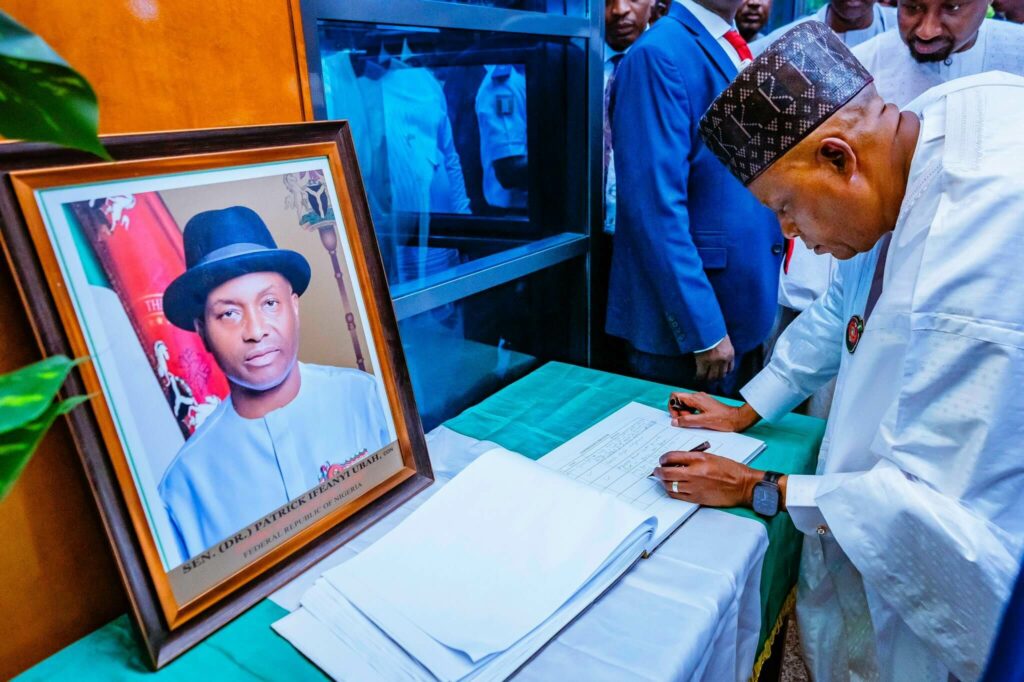While commemorating this year’s World Toilet Day, UNICEF revealed that globally, 3.5 billion people do not have access to safely managed sanitation services.
The organization explained that the alarming number underscores the urgency of collective efforts, and noted that “In Nigeria, the situation is even more critical. While some progress has been made recently, less than 3 out of every 5 members of the population has access to basic sanitation services. This translates to about 95 million people lacking access to basic sanitation services, and 48 million people practicing open defecation (out of which 18 million are children)”.
Dr. Olusoji Akinleye, CFO/OIC, UNICEF Field Office Enugu said this yesterday on the occasion of a zonal media dialogue on World Toilet Day organized by UNICEF in collaboration with BCA Umuahia at the conference room, UNICEF, Enugu Field.
Akinleye said that public facilities demonstrate evidently the lack of access to sanitation services as 70% of schools, 88% of health facilities, and 80% of markets and motor parks do not have basic sanitation services!
“The divide between urban and rural communities is quite evident, with 1 out of every five rural residents relying on unimproved toilet facilities and another 1 out of every five practicing open defecation. These are not just statistics – they represent daily struggles that undermine health, impede education, and weaken the social fabric.
The impact of this situation is felt in the society. The risk of waterborne diseases rises as a result of water sources being contaminated, the resilience of our communities weakens due to avoidable expenses on treatment of these diseases, the ability of students to learn maximally is reduced due to health-related school absenteeism, etc. Girls face unique challenges, especially during menstruation when they are more vulnerable to infection, that can lead to increased absenteeism, limiting their educational opportunities Addressing these challenges is a priority for UNICEF, as we work tirelessly to support safe, inclusive, and sustainable sanitation solutions”.
“During this year’s commemoration, we are proud to officially launch billboards in open-defecation-free (ODF) LGAs in Benue State. This will be focused on celebrating the importance and the use of toilets in these LGAs where the billboards will be installed in the ward to showcase their ODF Status. This, we believe, will drive home the ODF campaign to the general public, and support sustainability of the behavior”.
“Low involvement of traditional and religious leaders hampers community adoption of sanitation and hygiene practices.
In conclusion, UNICEF urges all stakeholders to renew their commitment to sanitation. This campaign is a call to action a moment to pledge to increase investments, implement strategies, and champion innovations that bring us closer to achieving universal access to sanitation by 2030. UNICEF stands ready to support this journey We also recognize the vital role that our youth and community leaders play. Initiatives led by school WASH clubs and community advocates are essential for driving change. We ask the Media to keep promoting actions that promote good hygiene and inspire the population to uphold the principles of basic sanitation”.
Mrs. Rebecca Gabriel, WASH Specialist, UNICEF Office, Enugu made an elaborate presentation on “Toilet A Place for Peace”, while Dr. Ijeoma Onuoha-Ogwe, Communication Officer, UNICEF, Enugu Field Office earlier remarked that the media remain veritable partners and stakeholders in the efforts to end open defecation and ensure sanitation in the environment.
It was an interactive session with media practitioners drawn from the various States of coverage by the UNICEF, Enugu Field Office.

 23 hours ago
3
23 hours ago
3













